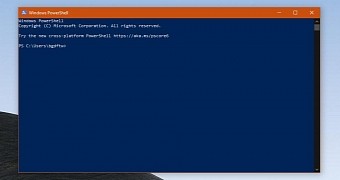Microsoft has recently announced the general availability of PowerShell 7.0 for all supported platforms, including Windows, Linux, and macOS.
The new version comes with an impressive changelog, all of which is detailed on this page, but the most notable are a series of new operators, a compatibility layer to import modules in an active session, and automatic new version notifications.
Furthermore, the new PowerShell update also brings substantial improvements in terms of backwards compatibility, which means more users running version 6.x should now be able to move to the new release.
“The shift from PowerShell Core 6.x to 7.0 also marks our move from .NET Core 2.x to 3.1. .NET Core 3.1 brings back a host of .NET Framework APIs (especially on Windows), enabling significantly more backwards compatibility with existing Windows PowerShell modules. This includes many modules on Windows that require GUI functionality like Out-GridView and Show-Command, as well as many role management modules that ship as part of Windows,” Microsoft explains.
All Windows versions supported
PowerShell 7.0 works on all Windows versions that are still getting support, and these include Windows 7, 8.1, and 10, but also on Windows Server 2008 R2, 2012, 2012 R2, 2016, and 2019. If you’re an Apple user, you can install the new version of macOS 10.13 and newer.
As far as Linux is concerned, Fedora 29+, Ubuntu 16.04+, OpenSuSE 15+, Alpine Linux 3.8+, and Debian 9+ are all supported. The ARM32 and ARM64 versions of Debian and Ubuntu can also run PowerShell 7.0, and so can Arch and Kali Linux, but only using community-created packages. These two distros aren’t officially supported – they will most likely be in future updates.
Microsoft says all modules that are currently supported by PowerShell Core 6.x should work flawlessly in the new version, and these include all Windows 10 and Windows Server modules, Active Directory and Azure PowerShell.

 14 DAY TRIAL //
14 DAY TRIAL //